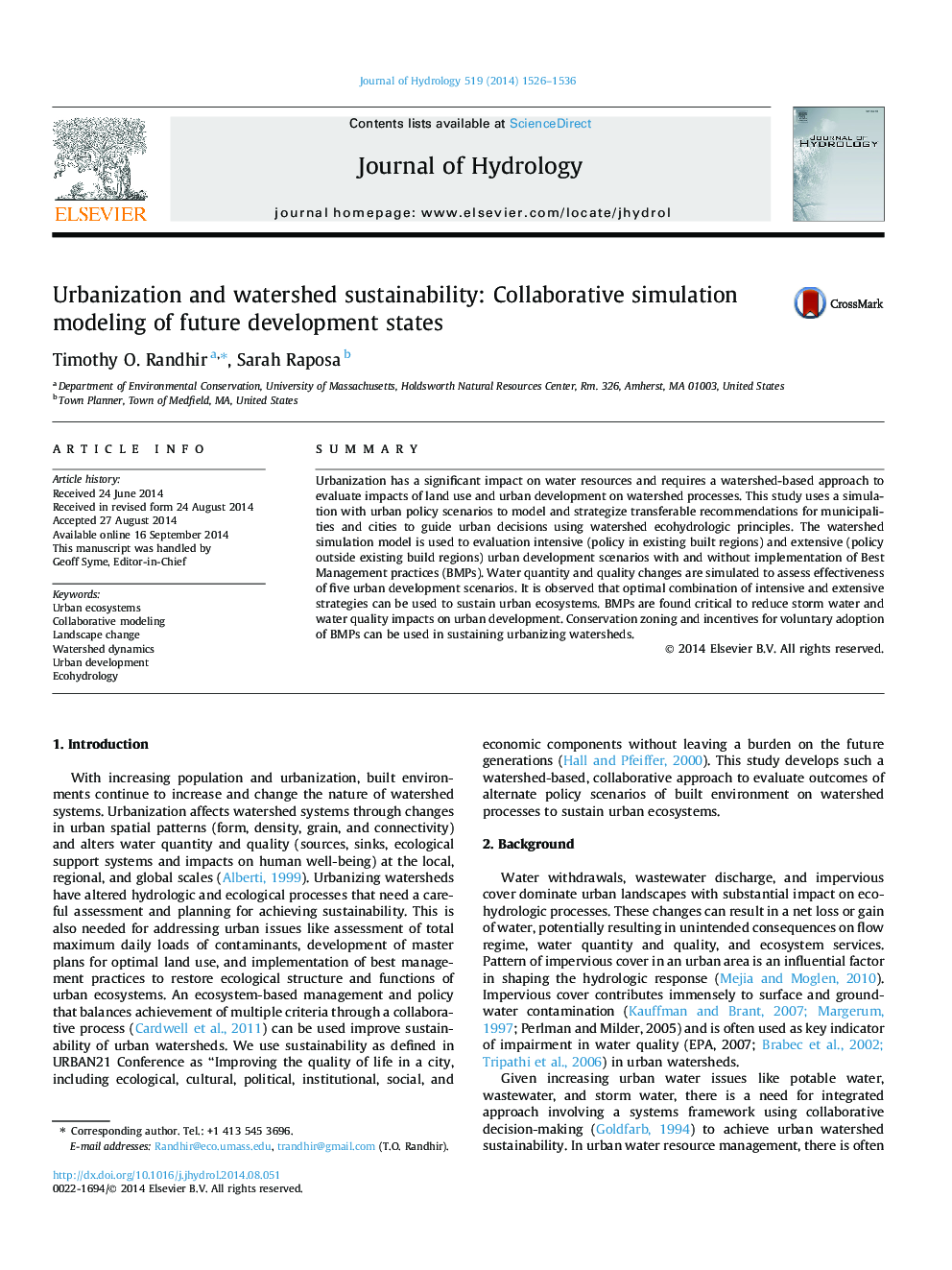| Article ID | Journal | Published Year | Pages | File Type |
|---|---|---|---|---|
| 6411946 | Journal of Hydrology | 2014 | 11 Pages |
â¢Optimal management practices can sustain urban hydrologic flows and water quality.â¢Collaborative modeling is needed to achieve urban sustainability.â¢Intensive and extensive urban change in built systems need management practices.â¢Scenario analysis is useful to evaluate urban watershed decisions.
SummaryUrbanization has a significant impact on water resources and requires a watershed-based approach to evaluate impacts of land use and urban development on watershed processes. This study uses a simulation with urban policy scenarios to model and strategize transferable recommendations for municipalities and cities to guide urban decisions using watershed ecohydrologic principles. The watershed simulation model is used to evaluation intensive (policy in existing built regions) and extensive (policy outside existing build regions) urban development scenarios with and without implementation of Best Management practices (BMPs). Water quantity and quality changes are simulated to assess effectiveness of five urban development scenarios. It is observed that optimal combination of intensive and extensive strategies can be used to sustain urban ecosystems. BMPs are found critical to reduce storm water and water quality impacts on urban development. Conservation zoning and incentives for voluntary adoption of BMPs can be used in sustaining urbanizing watersheds.
